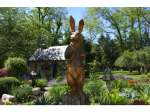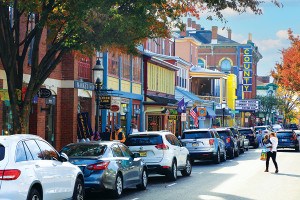Get Started on Your Own Garden
If the winter blues have left you dreaming of a beautiful flower garden or vegetable plot, now is the time to start planning and planting. Having your own garden is extremely rewarding and a great way to stay outdoors and active during the spring and summer months. A well-maintained garden can also add value to your house. Here are a few tips for how to get started on your own garden.
Plan It’s important to determine what type of garden you want to plant, how big of a garden you want to have, and where you want to plant it before heading to a garden center. If you’re new to gardening, start small—you’ll want to have something you can manage. You might want a small plot in the back yard, or a container garden if you’re planting in a limited, urban space. Planting your garden in a spot where you will see it often—say, by the mailbox or outside your kitchen window—will help remind you to weed and water your garden regularly.
Soil Gardens grow best with soil that has the right balance of clay, sand and silt. Before you begin planting, remove any large stones from the garden area and soil, and make sure the soil is properly fertilized. You can improve your soil by adding organic matter like compost, decaying leaves or dried grass clippings in a 2-3 inch layer overtop.
Plants Your garden will be most successful if you pick plants that have adapted to the soil, climate and amount of sunlight in your garden. Determining what you want to plant can also help you choose where you place your garden, too. Hearty flowers include: cosmos, marigolds, impatiens, zinnias and sunflowers, which are all annuals, and black-eyed Susans, pansies, purple coneflowers daylilies and phlox, which are all perennials. Some easy-to-grow vegetables are lettuce, peppers, tomatoes and cucumbers.
Looking for a property with outstanding garden spaces? Check out “Rabbit Run” in New Hope.



